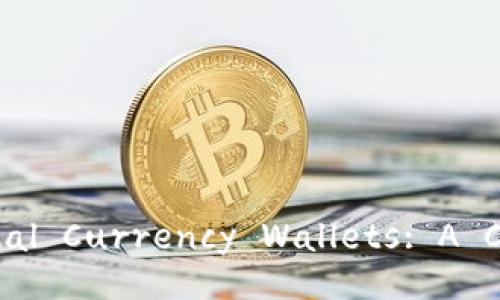...
Digital currency wallets are essential tools for anyone interested in cryptocurrencies. They allow users to store, send, and receive digital currencies securely. Unlike traditional wallets that hold physical cash, digital wallets manage cryptographic keys that grant you access to your cryptocurrencies. Without a wallet, you cannot interact with the blockchain and have ownership over your digital assets.
The importance of digital wallets in the cryptocurrency landscape cannot be overstated. They serve as gateways for individuals to participate in the growing financial ecosystem. As cryptocurrencies gain popularity, understanding how wallets function and how to choose the right one becomes increasingly relevant.
This section will explore the fundamental concepts of digital currency wallets, including their role in transactions and asset management within blockchain technology.
### 2. Types of Digital Currency WalletsThere are several types of digital currency wallets available, each designed to serve different needs and preferences. Understanding each type's benefits and drawbacks is crucial for users to select the best option for their cryptocurrency activities.
#### Hot Wallets vs. Cold WalletsThe primary distinction in digital wallets lies between hot wallets and cold wallets. Hot wallets are connected to the internet, making them user-friendly and perfect for everyday transactions. However, they are more vulnerable to hacking. Cold wallets, on the other hand, are offline and offer a higher level of security, making them suitable for long-term storage but less convenient for frequent exchanges.
#### Software Wallets: Desktop, Mobile, WebSoftware wallets can be further categorized into desktop, mobile, and web wallets. Desktop wallets are applications installed on a computer, providing a greater level of security than web wallets. Mobile wallets are ideal for traders during day-to-day transactions. Web wallets facilitate quick access to digital assets through a browser, but they require caution due to potential security risks.
#### Hardware Wallets: An OverviewHardware wallets are physical devices designed to securely store digital keys offline. They are considered one of the safest options for storing cryptocurrencies, as they are immune to online attacks. Examples include devices like Ledger and Trezor, which have gained popularity among serious investors.
#### Paper Wallets and Their ApplicationsA paper wallet is a physical document bearing your public and private keys, often represented as QR codes. Though they are highly secure from online threats, using them requires careful handling to prevent physical loss or damage.
### 3. How to Choose the Right Digital Currency WalletChoosing the right digital currency wallet is vital for your cryptocurrency experience. Various factors can influence your decision, including security, accessibility, user-friendliness, and specific features you may need.
#### Security FeaturesOne of the most critical aspects to consider is the wallet's security features. Look for wallets that offer two-factor authentication, encryption, and multi-signature capabilities. Ensuring that your wallet has robust security measures can protect your assets against potential risks.
#### AccessibilityAssess how often you need access to your wallet. If you're a frequent trader, you might prefer a hot wallet for its ease of use. Conversely, if you're holding assets long-term, a cold wallet would be more suitable.
#### User-FriendlinessThe interface and experience of using the wallet can significantly impact your ease of managing your assets. Choose a wallet that feels intuitive, especially if you are new to cryptocurrency.
#### Popular Wallet OptionsSeveral wallet options cater to different users. Well-known software wallets include Exodus, Electrum, and Trust Wallet, while hardware wallets like Ledger Nano S and Trezor remain popular for secure storage. Compare their features to find what best suits your needs.
#### Tips for BeginnersBeginners should start by researching and reading reviews of various wallets. It's also wise to begin with smaller amounts until you become comfortable with the wallet's functionality. Additionally, consider wallets that offer customer support to assist you in the early stages of your cryptocurrency journey.
### 4. Setting Up Your Digital Currency WalletOnce you've chosen the right digital currency wallet, it's time to set it up. This section will provide a step-by-step guide to ensure a smooth experience.
#### Step-by-Step Setup GuideTo set up a software wallet, download it from the official website or app store. For hardware wallets, follow the manufacturer's instructions carefully. Upon installation, you'll usually be prompted to create a new wallet or restore an existing one.
#### Important Considerations During SetupAs you set up your wallet, be prepared to create a strong password. Many wallets also require you to write down a recovery phrase, which is a combination of words that serves as a backup. This is crucial, as losing it may result in permanent loss of access to your wallet.
#### Best Practices for Securing Your WalletBefore you start using your wallet, ensure that your device is secure, updated, and free from malware. Consider enabling two-factor authentication for an added layer of protection. Lastly, make regular backups of your recovery phrase and wallet data to prevent potential loss.
### 5. Managing Your Digital Currency WalletManaging your wallet effectively is essential for your cryptocurrency endeavors. This section offers guidance on conducting transactions and keeping track of your assets.
#### How to Send and Receive CryptocurrenciesTo send cryptocurrencies, you need to enter the recipient’s wallet address, specify the amount, and confirm the transaction. Be sure to double-check the address, as transactions on the blockchain are irreversible. Receiving funds works similarly; provide your wallet address to the sender.
#### Understanding Transaction FeesTransaction fees are associated with sending and receiving cryptocurrencies. These fees can vary depending on network congestion and the urgency of your transaction. Understanding how fees work can help you manage your funds more effectively and choose the right time to make transactions.
#### Keeping Track of Your AssetsMost wallets provide features to monitor your assets. Utilize these tools to track your balances and transaction histories actively. For better organization, consider using spreadsheet tools or portfolio tracking apps that provide insights into your holdings and market trends.
### 6. Security Measures for Digital Currency WalletsAs digital currencies grow in popularity, so do the potential threats. Implementing robust security measures is crucial to protect your assets.
#### Common Threats and VulnerabilitiesUnderstanding common threats can help you stay vigilant. Phishing attacks, malware, and hacks on exchanges are prevalent methods of stealing funds. Always be cautious of unsolicited messages or emails asking for your wallet information.
#### Best Practices for Enhancing Wallet SecurityTo enhance your wallet's security, consider using hardware wallets for larger holdings. Regularly update your wallet software and use complex passwords. Additionally, consider utilizing security features such as biometric authentication for mobile wallets.
#### Importance of Backups and Recovery PhrasesBacking up your wallet and storing your recovery phrase securely should never be overlooked. Store backups in a safe place, preferably offline, and share them only with trusted individuals. This ensures that even in case of device loss or failure, your assets remain secure.
### 7. The Future of Digital Currency WalletsAs the cryptocurrency landscape evolves, so do digital currency wallets. This section explores potential trends and innovations that may shape the future of wallets.
#### Trends in Wallet TechnologyEmerging trends include enhanced security features, multi-chain wallets that support numerous cryptocurrencies, and integration with decentralized finance (DeFi) platforms. These advancements strive to enhance user experience while keeping assets secure.
#### Integration with DeFi and Other Blockchain ApplicationsAs DeFi continues to grow, wallets that seamlessly integrate with DeFi applications will become more valuable. This integration allows users to lend, borrow, and trade directly from their wallets, enhancing convenience.
#### Predictions for the Future Landscape of Digital WalletsLooking ahead, we can expect digital currency wallets to play a more significant role in financial transactions, potentially becoming standard financial tools. Innovations like biometric security and built-in exchange functionalities may also emerge, making it easier for users to manage their digital assets.
### 8. ConclusionDigital currency wallets are an essential part of engaging in the cryptocurrency world. With various options available, choosing the right wallet based on your needs is paramount. With robust security practices and a clear understanding of how wallets work, users can navigate the crypto landscape with confidence.
As the digital currency ecosystem continues to evolve, staying informed about wallets and security measures is crucial for safeguarding your financial assets. Embrace the digital currency revolution and explore the potential of digital wallets in today’s financial landscape.
--- ## Related Questions 1. **What is the difference between a hot wallet and a cold wallet?** - Discusses the definitions, security differences, and ideal use cases of each. 2. **How do I keep my cryptocurrency wallet secure?** - Offers tips based on common security risks and best practices for wallet security. 3. **What is the process for creating a paper wallet?** - Step-by-step guidance on creating and using paper wallets securely. 4. **How do I recover my digital currency wallet if I lose access?** - Detailed explanation of recovery phrases, backup strategies, and wallet recovery processes. 5. **What are the best wallets for beginners?** - Recommendations of user-friendly wallets for cryptocurrency newcomers. 6. **How do transaction fees work in cryptocurrency wallets?** - Breakdown of transaction fees, why they exist, and how they can vary. 7. **What are the upcoming trends in digital currency wallets?** - Insights into future developments and innovations anticipated in the wallet ecosystem.
